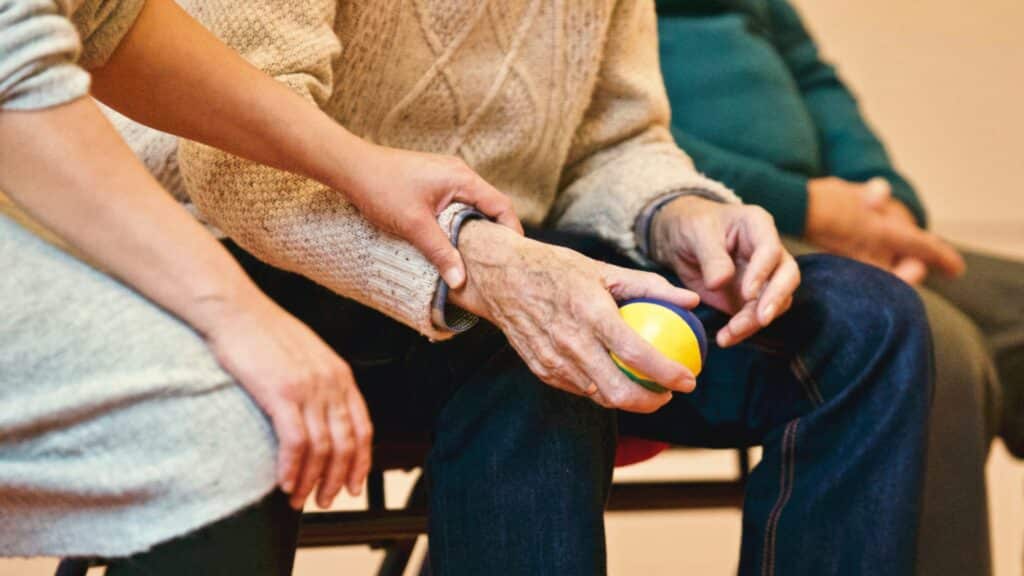When it comes to caring for elderly family members, one of the most important considerations is making sure they are safe and secure in their nursing home.
Unfortunately, not all nursing homes take proper care of their residents. Elder abuse and neglect can occur when caregivers fail to provide adequate care or when staff behave inappropriately towards residents.
It’s heartbreaking, but it’s unfortunately a reality that some people experience in nursing homes across the country. It can be difficult to know if your loved one is being neglected in a nursing home; however, there are certain warning signs you should be aware of that may point to elder abuse or negligence.
In this blog post, we will discuss 11 common warning signs of nursing home abuse as well as steps you should take if you suspect something is wrong. We’ll also provide tips on finding the right lawyer for your case and ways to protect yourself or someone else from abuse in a nursing home setting.
11 Warning Signs of Nursing Home Abuse & Negligence
1. Unexplained injuries or bruising
Unexplained injuries or bruising is one of the most common warning signs of elder abuse and neglect in nursing homes. It can be a sign that somebody has been mistreated, either physically or psychologically. In some cases, it may even indicate sexual assault.
No matter what the cause, it’s important to take notice if your loved one is displaying any unexplained bruises or injuries while in a nursing home setting. While it can be difficult to determine whether an injury was caused by negligence of the staff at a nursing home, there are certain red flags you should look for when evaluating their care.
If someone has multiple bruises or injuries that don’t seem to match up with each other—or have no explanation as to how they were caused—it could be a sign that something more sinister is going on within the facility. Additionally, if these marks appear suddenly after entering into a new environment such as a nursing home, this could also point towards potential abuse or neglect occurring at the facility.
If you notice any suspicious marks on your loved one’s body while visiting them in their nursing home environment, make sure to document these findings immediately and speak up if something doesn’t feel right.
2. Sudden changes in financial situations
One of the warning signs that nursing home abuse or negligence might be occurring is sudden changes in financial situations. It’s important to pay close attention to any irregularities when it comes to your loved one’s finances, as this could potentially indicate a serious problem.
When it comes to nursing homes and other long-term care facilities, money can often change hands between staff members, family members, and other individuals who may have access to elderly residents’ accounts. When there are sudden shifts in someone’s financial situation—such as unexplained withdrawals from their bank account or credit card charges they don’t recognize—it could be a sign that something untoward is happening within the nursing home environment.
It’s especially important for those with aging parents or relatives living in nursing homes to monitor their finances closely on a regular basis. If you notice any strange activity or unexpected transactions taking place without explanation, it should prompt an investigation into what is really going on.
This includes discrepancies between bills being paid by the nursing home and what was actually used for services rendered. If there appears to be an overcharge for services that were never provided, this could point towards potential fraud or neglect on behalf of staff members.
Again, if you notice any unexpected financial transactions or discrepancies in nursing home bills, it’s important to speak up and document these findings.
3. Unsanitary living conditions
Unsanitary living conditions are one of the most obvious warning signs of nursing home abuse and elder abuse. This can range from unclean bedding and clothing, to dirty bathrooms or kitchens that are not properly maintained. It’s important to pay attention to these details when visiting nursing homes as they can indicate a lack of care being provided by staff members.
In addition to physical signs of neglect, there may also be verbal indicators such as residents complaining about the quality or cleanliness of their environment. If you hear any comments like this while visiting your loved one in a nursing home setting, it should prompt an investigation into what is really going on within its walls.
Unsanitary living conditions can lead to serious medical issues for elderly individuals who already have compromised immune systems, so it’s essential that nursing homes maintain proper standards when it comes to hygienic practices.
4. Poor hygiene and grooming habits
Poor hygiene and grooming habits can be a major sign of nursing home abuse or elder abuse. This type of neglect can often go unnoticed, as elderly individuals may not have the resources to maintain their own personal hygiene needs. It’s important to pay close attention to any changes in your loved one’s appearance while visiting them at nursing homes, as this could point towards potential problems occurring within its walls.
Poor hygiene and grooming habits can include everything from unkempt hair or clothing that is not properly cleaned or maintained, to nails that are too long or dirty skin caused by lack of bathing. In some cases, nursing home staff members may also fail to provide elderly residents with basic necessities such as toothpaste, soap, shampoo, deodorant and other items needed for proper hygiene maintenance.
If you notice any sudden changes in your loved one’s physical appearance during visits—such as disheveled hair or dirty clothes—it should prompt an investigation into what is really going on within the nursing home environment.
5. Withdrawal from activities or social interactions
Withdrawal from activities or social interactions can be one of the most concerning warning signs of nursing home abuse. When elderly individuals are not given enough opportunities to engage in meaningful activities, it can lead to feelings of isolation, loneliness, and depression. Unfortunately, this type of neglect is often overlooked because it’s difficult for family members or other visitors to detect.
It’s important to pay close attention when visiting nursing homes as there may be subtle signs that something is wrong—such as residents sitting alone in their rooms without engaging with others or avoiding conversations altogether.
6. Overmedication or under-medication

When it comes to nursing home abuse, overmedication or under-medication is a major warning sign that should not be overlooked. Medications are often used as a means of controlling elderly individuals who may be suffering from mental health issues such as dementia or Alzheimer’s disease. Unfortunately, nursing homes can sometimes use medications in inappropriate ways.
Overmedication refers to the administration of medications above what is medically recommended for an individual’s condition. This can happen when nursing home staff members give excessive doses of certain drugs in order to sedate residents and make them easier to manage. Overmedicating elderly individuals can lead to serious health problems such as confusion, increased risk of falls and fractures, dehydration and even death in some cases.
Under-medication occurs when nursing home staff fail to provide adequate levels of medication needed for a resident’s medical condition. These types of situations can result in inadequate pain relief, improper treatment for illness or infection, and other serious complications that could have been prevented with proper care.
7. Unusual behavior
Unusual behavior is one of the most common warning signs of nursing home abuse and elder abuse. Unfortunately, it can be difficult to detect as elderly individuals may not always express their feelings or explain what is wrong. It’s important for family members and visitors to pay close attention when visiting nursing homes in order to spot any changes in a loved one’s behavior that could point towards potential problems occurring at the facility.
There are several types of unusual behaviors that should raise red flags when visiting nursing homes, such as sudden outbursts or agitation, refusal to eat meals provided by the nursing home, self-harming behaviors such as hitting oneself, rocking back and forth repetitively or exhibiting fearfulness in certain situations.
Of course, it’s often difficult to tie these common symptoms of diseases such as dementia or Alzheimer’s to nursing home abuse. In such cases, it is advisable to seek help from professionals who are experienced in dealing with nursing home abuse and neglect, such as an elder abuse or nursing home abuse attorney.
8. Physical aggression towards staff members
Physical aggression towards nursing home staff members by residents is a major warning sign of nursing home abuse and elder abuse. Unfortunately, it can be difficult to detect as elderly individuals may not always express their feelings or explain what is wrong.
When physical aggression occurs, nursing home staff members should take immediate steps to protect themselves and the resident involved. This includes providing safe spaces away from other residents, offering verbal de-escalation techniques such as calming words or phrases, using distraction tactics such as playing music or games, and having medical personnel available if necessary. In some cases, anti-anxiety medications may also be prescribed if needed.
However, sometimes physical aggression towards staff may result in a resident becoming unduly injured, isolated, or overmedicated. If you suspect nursing home staff members are not taking appropriate steps to protect a resident when physical aggression occurs, it is important to contact an attorney right away.
9. Abusive language towards residents
Unfortunately, nursing home staff members may use inappropriate language when speaking with residents, including name-calling, belittling remarks or insults designed to humiliate and degrade them.
This type of verbal abuse can have a devastating effect on an elderly person’s mental wellbeing and self-esteem. It also creates an environment in which other forms of neglect or abuse are more likely to occur.
10. Lack of basic necessities
One of the most alarming warning signs of nursing home abuse and elder abuse is a lack of basic necessities such as food, water, and clothing.
When nursing home staff members are negligent in providing these vital needs, it can result in malnutrition or dehydration due to an inadequate diet or insufficient hydration. It can also lead to a resident becoming overly cold due to inadequate heating or not having enough layers of clothing.
In some cases, neglectful nursing homes may even fail to provide necessary medical supplies such as oxygen tanks or wheelchairs which further complicates the situation.
11. Bed sores
Bed sores, also known as pressure ulcers or decubitus ulcers, are a common sign of nursing home abuse and elder abuse. These wounds occur when an elderly person is unable to move around in bed due to immobility or lack of assistance from nursing home staff members. Over time, the inability to shift positions can cause skin breakdown and lead to painful open wounds that can become infected if left untreated.
Bed sores are especially dangerous for those with weakened immune systems since they can easily become infected by bacteria present on the skin’s surface. In addition, these types of wounds typically take longer than usual to heal due to decreased blood circulation and tissue damage caused by prolonged pressure on the skin.
In some cases, nursing home staff may be negligent in providing enough help with mobility exercises which further exacerbates this problem. If nursing home residents are not given proper support while moving around or turning over in bed, it increases their risk for developing bed sores which could lead to serious infections if left untreated.

What to Do If You Suspect Nursing Home Abuse
With these warning signs in mind, it’s important to be prepared and know what to do if you suspect nursing home abuse or negligence. Here are some key steps you should take:
1. Document any potential signs of nursing home abuse, such as changes in the resident’s behavior, physical injuries, or lack of basic necessities. Take photos of the physical injury.
2. Talk to nursing home staff members and ask questions about their practices and procedures for protecting residents, and, of course, document their answers to any specific questions.
3. If nursing home staff members are unwilling to answer your questions or address your concerns, contact a nursing home abuse lawyer as soon as possible and file a complaint with the facility.
4. Once you have filed a complaint, make sure to follow up and continue monitoring the nursing home for any changes in resident care or other warning signs of elder abuse.
Finding the Right Lawyer For Your Case
If you suspect nursing home negligence or elder abuse, it’s important to find an experienced nursing home abuse lawyer who can help get justice for your loved one. When searching for a lawyer, look for someone who is knowledgeable about nursing homes and their regulations so they can better understand what type of compensation may be available.
Also make sure to ask about their experience with nursing home abuse cases and inquire about any past successes they have had in similar cases. This can help you determine whether or not the lawyer is a good fit for your particular situation.
We always tell our clients to do their research and make sure to choose a nursing home abuse lawyer who is certified, experienced, and has a history of success with plenty of positive reviews.
It is important to be aware of the warning signs of nursing home negligence and elder abuse so that you can protect your loved ones from harm. If you suspect nursing home negligence or abuse, it’s important to document any potential incidents and contact a nursing home abuse lawyer as soon as possible. When searching for a lawyer, make sure to find one who is knowledgeable about nursing homes and their regulations so they can better understand what type of compensation may be available.
With the right information and representation on your side, you will have the best chance at getting justice for yourself or someone else affected by nursing home neglect.

Kotlar, Hernandez & Cohen: Nursing Home Abuse Lawyers
At Kotlar, Hernandez & Cohen – The People First Lawyers, we have decades of experience with helping victims of nursing home abuse find justice, and our personal injury attorneys may be able to help you file a claim for compensation. We work tirelessly for our clients to ensure you receive medical care, financial compensation, and justice. With multiple Board-Certified Civil Trial attorneys on our team who specialize in car accident lawsuits, we are well-equipped to handle your case.
If you or a loved one were the victim of nursing home abuse, please contact our team of nursing home abuse lawyers to schedule a free consultation or call us 24/7 at (856) 751-7676.

José W. Hernandez, Partner
José is Board-Certified by the Supreme Court of the State of New Jersey as a Civil Trial Attorney and a Life Member of the Million Dollar Advocates Forum, a select group of attorneys who have successfully handled cases that resulted in a recovery of $1 million or more for their clients.


